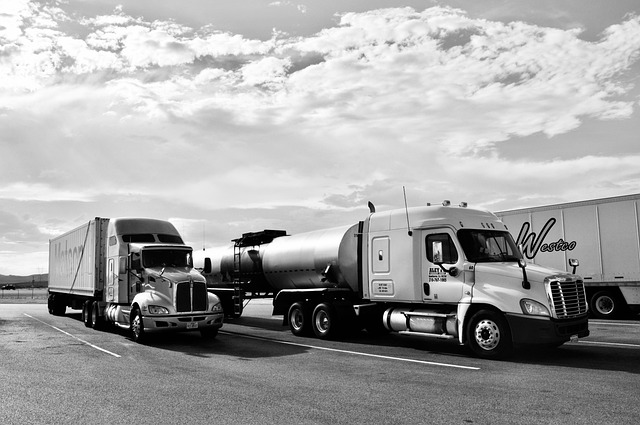Trucking companies face unique risks, demanding specialized insurance startup strategies for long-term success. By offering tailored coverage for physical damages, theft, and regulatory changes, these startups enhance resilience and mitigate financial losses. A dynamic framework leveraging technology, comprehensive risk assessment models, and data analytics is key to navigating market uncertainties and fostering growth. In the digital age, insurance startups utilize telematics, IoT, and AI for real-time risk management and dynamic pricing, promoting safety and efficiency. Long-term success involves KPI tracking, strategy reviews, and adaptability to market trends, regulatory shifts, and tech innovations.
In today’s competitive landscape, fostering long-term growth requires more than just robust operations—it demands resilience. For insurance startups catering to trucking companies, understanding unique risks is paramount. Building a resilient insurance strategy involves integrating key components that mitigate potential hazards, ensuring sustained success. Technology plays a pivotal role in enhancing risk management for these startups, offering innovative solutions tailored to the dynamic nature of the trucking industry. By measuring success and adapting strategies, insurance startups can navigate challenges and achieve long-term growth.
Understanding the Unique Risks of Trucking Companies

Trucking companies face a distinct set of challenges that require tailored insurance strategies for long-term resilience. These businesses operate in a demanding environment, with drivers navigating intricate road networks and handling valuable cargo under tight deadlines. The unique risks include high exposure to property damage due to accidents or natural disasters, as well as liability concerns stemming from cargo loss or damage during transit.
Insurance startups have recognised these specific needs, offering specialised coverage that goes beyond standard policies. They provide comprehensive protection against physical damages, theft, and regulatory changes, ensuring trucking operations remain uninterrupted. By understanding the intricate web of risks and leveraging innovative insurance solutions, companies can foster resilience, mitigate financial losses, and sustain growth over time.
Building Resilience: Key Components of an Effective Insurance Strategy

Building resilience is a cornerstone for any successful long-term growth strategy, especially within the dynamic landscape of the insurance industry and for trucking companies. An effective insurance strategy goes beyond mere risk mitigation; it’s about creating a robust framework that can adapt to evolving market conditions and unexpected challenges.
For insurance startups catering to trucking companies, this means incorporating key components such as comprehensive coverage options, tailored risk assessment models, and innovative data analytics. By leveraging technology, these startups can offer personalized solutions that account for specific industry risks, from vehicle breakdowns to cargo damage and regulatory changes. Such a proactive approach equips both insurers and truckers with the tools necessary to navigate uncertainties, ensuring sustained growth and financial stability over time.
The Role of Technology in Enhancing Risk Management for Startups

In today’s digital era, technology plays a pivotal role in enhancing risk management for startups, particularly within the niche of insurance for trucking companies. By leveraging data analytics and artificial intelligence, insurers can gain deeper insights into the operations and risks associated with these businesses. This enables them to tailor more comprehensive and resilient insurance strategies that cater to the unique challenges faced by trucking startups.
For instance, advanced telematics and IoT devices can monitor vehicle performance, driver behavior, and road conditions in real-time. This wealth of data helps insurers accurately assess risk profiles, predict potential hazards, and develop dynamic pricing models that reward safe driving practices. Such innovative approaches not only strengthen the financial resilience of startups but also foster a culture of safety and efficiency within the trucking industry as a whole.
Long-Term Growth: Measuring Success and Adapting Your Strategy

Measuring long-term growth in any business, especially an insurance startup catering to trucking companies, involves more than just financial metrics. It’s about understanding the resilience and adaptability of your strategy in a constantly evolving market. Key performance indicators (KPIs) such as policy retention rates, customer satisfaction scores, and the number of new, high-value policies issued can indicate successful long-term growth. However, these should be complemented with assessments of market trends, regulatory changes, and technological advancements that could impact the insurance industry and trucking sector specifically.
Regularly reviewing and updating your strategy is crucial for adapting to these changes. This might involve refining risk assessment models, introducing innovative products or services tailored to emerging needs in trucking, or enhancing data analytics capabilities to better predict and manage risks. Ultimately, a resilient insurance strategy for long-term growth should be flexible, forward-thinking, and responsive to market dynamics, ensuring your startup remains competitive and relevant in the ever-changing landscape of insurance and trucking.
In today’s dynamic business landscape, particularly within the intricate world of trucking companies, fostering long-term growth necessitates a resilient insurance strategy. By understanding unique risks, incorporating technology, and measuring success through key performance indicators, startups can navigate uncertainties and thrive. An effective insurance approach, tailored to meet the specific needs of trucking businesses, is not just a safety net but an enabler of sustainable growth. This holistic perspective ensures that startups are equipped to adapt, innovate, and prosper in an ever-changing market.
